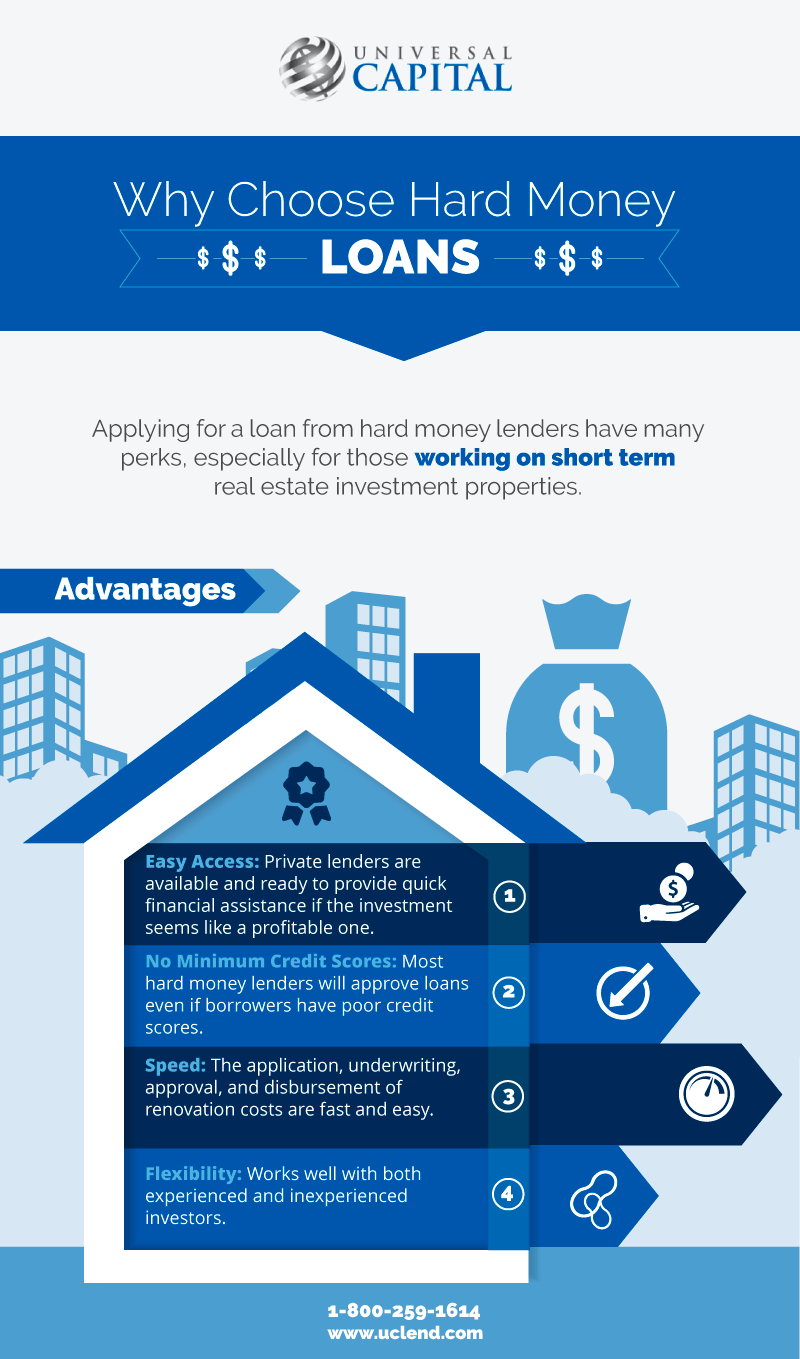Find the Best Hard Money Lenders in Atlanta for Real Estate Investment Projects
Find the Best Hard Money Lenders in Atlanta for Real Estate Investment Projects
Blog Article
Hard Money Lenders vs. Typical Financings: What You Need to Know
In the realm of funding, the option between hard cash loan providers and standard loans offers unique advantages and obstacles that quality mindful consideration. Tough cash financings can assist in rapid financing for time-sensitive projects, albeit at a greater expense, while standard finances usually offer more desirable terms however need rigid qualification standards.
Understanding Difficult Money Lending
Difficult cash lending represents a distinct economic system that differs considerably from traditional financing structures. This sort of financing is largely asset-based, implying that the funding is secured by real estate or home instead of relying heavily on the customer's credit reliability. Difficult money lending institutions normally provide short-term finances with greater rate of interest compared to traditional financing options, which might make them appealing for sure debtors, specifically investor.
The main objective of tough money lendings is to assist in fast accessibility to resources, allowing borrowers to seize time-sensitive investment possibilities or address immediate monetary requirements. These loans are frequently processed faster than traditional financings, as they require less documents and less underwriting criteria. Because of this, hard money offering serves a certain niche within the borrowing market, satisfying those who may not qualify for conventional financing or who call for prompt funds.

Review of Traditional Finances

Rates of interest for typical finances are influenced by market conditions and the consumer's creditworthiness, often resulting in reduced prices contrasted to alternate financing techniques. Repayment terms can differ, normally varying from 3 to thirty years, with taken care of or adjustable interest choices.
Among the defining features of standard car loans is their amortization framework, which allows customers to make constant regular monthly settlements over the loan term. This predictability aids in financial preparation and budgeting. In addition, standard lendings typically provide customers the chance to develop equity, specifically when it comes to realty financing.
Secret Differences in Terms
When contrasting funding alternatives, recognizing the vital distinctions in terms between tough cash loan providers and typical fundings is crucial for debtors. One substantial difference exists in the approval procedure. Tough cash loans commonly provide quicker access to funds, favorably commonly provided within days, while standard finances can take his response weeks and even months because of extensive underwriting procedures.
An additional vital difference refer to passion prices. Tough cash lending institutions charge higher rates of interest, frequently ranging from 8% to 15%, mirroring the raised risk they presume. In comparison, typical lendings normally feature lower rates, usually in between 3% and 6%, depending on the consumer's credit reliability and market problems.

In addition, settlement terms vary; tough cash lendings usually have much shorter terms, balancing 1 to 3 years, while traditional car loans can prolong up to thirty years, giving consumers with even more time to settle. Recognizing these terms is crucial for making informed financial decisions.
Advantages And Disadvantages of Each Choice
Assessing the pros and disadvantages of tough money lending institutions and traditional finances is crucial for consumers looking for the ideal financing option for their requirements. The high-interest rates and brief settlement terms associated with difficult money financings can lead to financial stress if not handled meticulously.
On the other hand, standard financings provide reduced rate of interest and more prolonged repayment durations, making them a much more economical long-lasting choice. This stability is valuable for borrowers looking to buy realty or finance considerable purchases. The application process can be cumbersome and prolonged, usually calling for extensive documents and a solid credit report history.

Eventually, the choice in between difficult money loan providers and standard finances hinges on individual situations, including necessity, credit scores status, and the particular monetary objectives of the debtor. Each option provides distinct benefits and difficulties, demanding a detailed analysis of one's financial circumstance prior to deciding.
Choosing the Right Financing
Choosing the right funding alternative is vital for customers intending to accomplish their financial objectives effectively. When thinking about hard cash lending institutions versus conventional fundings, numerous variables must be assessed, including rate, expense, and purpose of the financing.
Difficult cash car loans are commonly faster to secure, interesting those needing instant resources genuine estate financial investments or immediate economic requirements. These financings often come with higher rate of interest prices and shorter repayment terms, making them a lot more suitable for short-term projects that can quickly generate returns.
Alternatively, standard financings tend to offer lower rates of interest and longer navigate to this site repayment durations, making them suitable for long-lasting funding requirements, such as purchasing a home. They find here call for comprehensive credit score analyses and considerable documents, which can prolong the approval procedure.
Eventually, the selection in between tough cash and conventional loans need to straighten with the consumer's certain monetary goals, danger tolerance, and timeline. Analyzing the necessity of the funding, the prospective return on investment, and individual monetary situations will direct borrowers in making an educated decision that best supports their purposes.
Final Thought
In summary, both tough cash loan providers and typical fundings serve distinctive objectives within the funding landscape. Tough money financings provide quick accessibility to capital, albeit with greater expenses and shorter terms, ideal for urgent monetary requirements.
Difficult cash lendings can assist in rapid funding for time-sensitive projects, albeit at a higher price, while standard finances typically use more beneficial terms however demand strict qualification criteria. These loans are typically processed faster than standard financings, as they require less documents and fewer underwriting criteria (hard money lenders atlanta). These car loans are typically used by financial institutions and credit report unions, and they come in various forms, including home mortgages, individual financings, and auto financings.One of the defining functions of typical lendings is their amortization framework, which enables customers to make regular month-to-month repayments over the car loan term. Hard money finances commonly offer quicker access to funds, with authorizations usually provided within days, while typical finances can take weeks or even months due to considerable underwriting treatments
Report this page